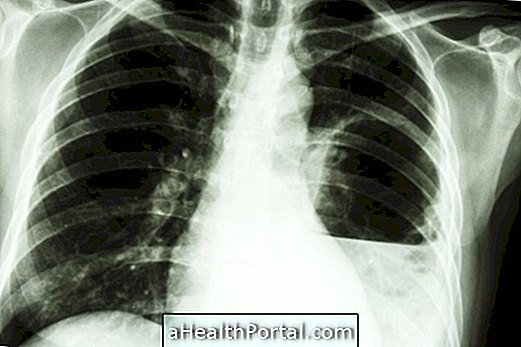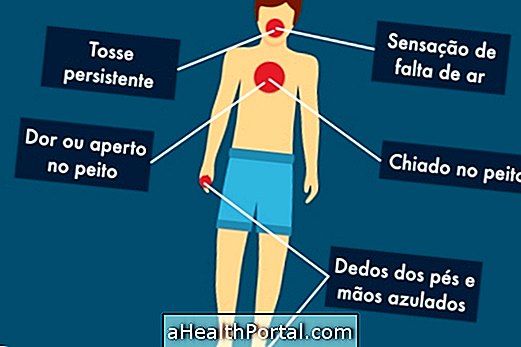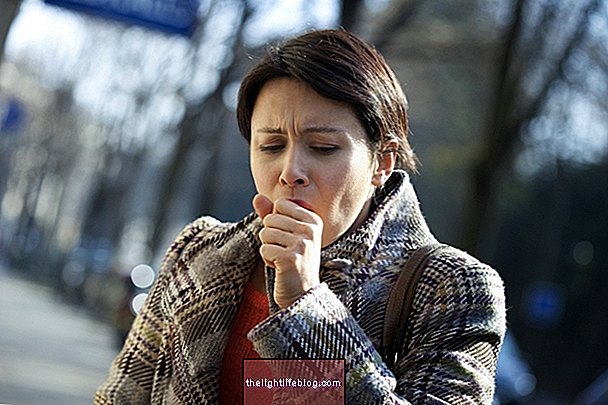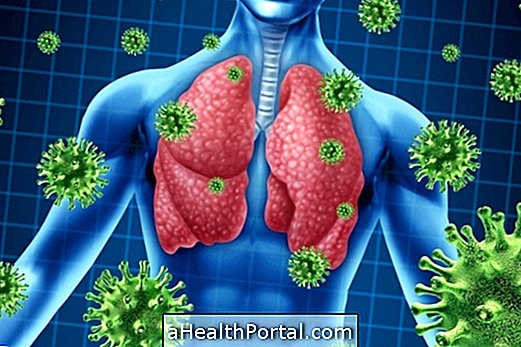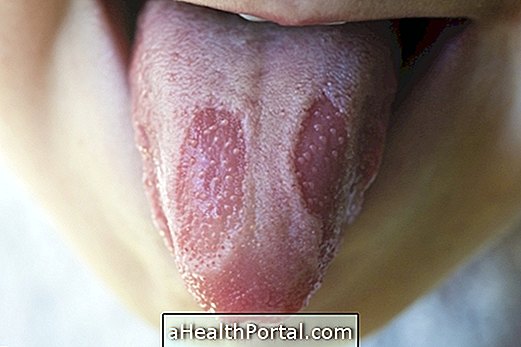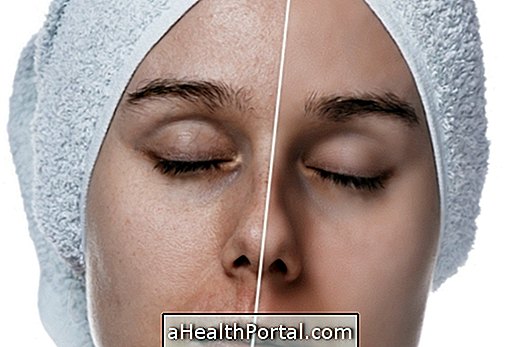Sinusitis can happen several times throughout life due to different causes such as infection by influenza virus or allergies, for example.
Thus, in order to cure each sinus episode, one must eliminate what is causing the inflammation and follow some simple tips to relieve the symptoms and facilitate the healing of each crisis.
1. Humidify the air

Using a humidifier or simply placing a bucket of warm water inside the rooms of the house is a great way to humidify the air, making it less dry. This makes the airways more hydrated and less irritated, relieving discomfort and facilitating healing.
This tip is especially useful at night to facilitate sleep and avoid waking up with a stuffy nose, for example.
2. Use saline to clean the nose

Putting a few drops of saline into each nostril helps to eliminate dirt and accumulation of secretions, as it thinns the phlegm, making it easier to remove. Thus, the ideal is not to inhale the serum, but to blow your nose soon after.
3. Use a homemade saline solution

Adding 1 tablespoon of salt to a glass of filtered or mineral water and applying this mixture inside the nose is also a home-made way to end sinus discomfort.
You can put this mixture in a syringe and sneeze inside your nose, keeping your mouth open. Thus it is possible to remove a good amount of phlegm and impurities leaving the nose untied easily.
4. Inspire Herbal Vapors

Placing some leaves and flowers of chamomile or northern bitch in a bowl of warm water is also a great way to relieve nasal congestion caused by sinusitis.
The following can even be put a damp cloth still warm on the face, because this will also help improve breathing faster.
5. Drink more water
A natural way to moisturize the sinuses, being a great help in case of dry sinusitis is to consume more liquids, especially water or teas without sugar. Thus all the tissues of the body become more hydrated, including the nasal mucosa.
Check out some other home remedy options that can control the disease:

6. Eat Warm Meals

Soups and broths are good options for lunch and dinner while sinusitis symptoms are present. These dishes help clear the nose and reduce the pain and irritation of the nasal mucosa.
7. Get enough rest

In the event of a sinusitis crisis, it is recommended to rest if possible, or at least to get adequate rest. Sleeping late and waking up always tired may indicate that you are not resting enough.
During the treatment is indicated to avoid efforts and to do physical activity with very intense training. 20-minute walks can be welcome if they are performed in an airy, leafy location, but if your sinusitis is caused by allergy, this may not be a good option, and staying at home may be a better choice.
When to take medicine
Medications such as nasal decongestant or antihistamine may be indicated when sinusitis can not be controlled with home methods for 7 to 10 days.
The doctor may also recommend the use of corticosteroids, anti-inflammatories or antibiotics to use for 5 to 7 days, depending on the need, and if there are other symptoms such as fever, or if the person has asthma or some other respiratory illness that may aggravate due to to sinusitis.
See which medications are used and how sinusitis is treated.
How long does it take to cure sinusitis?
Sinus healing can be achieved within 1 month, but if the symptoms last longer, one can say that the person has chronic sinusitis.
What can cause chronic sinusitis
Although in most cases the sinusitis is cured after treatment and takes a long time to reappear, there are people suffering from chronic sinusitis, which arises several times throughout the year.
Generally, this type of sinusitis is caused by causes that are not easy to eliminate and are therefore constantly irritating the sinuses and causing the problem to appear. These causes include:
- Respiratory allergies, such as allergy to animal hair or dust;
- Cigarette smoke;
- Autoimmune diseases that weaken the immune system.
In addition, some people may still have nasal polyps or other anatomical problems that facilitate the development of sinusitis. In these cases, the doctor may recommend surgery to resolve the problem, which ends up healing the problem. However, this surgery does not prevent the sinusitis from recurring due to other cases, such as allergies or influenza virus infection, for example.
How To Treat Chronic Sinusitis
In the vast majority of cases of chronic sinusitis, in addition to medications, the treatment should also involve changes in lifestyle to try to avoid the causes that may be causing inflammation of the sinuses. Some of these changes include quitting smoking, avoiding being in polluted places, and keeping the house always clean and free of dust.

